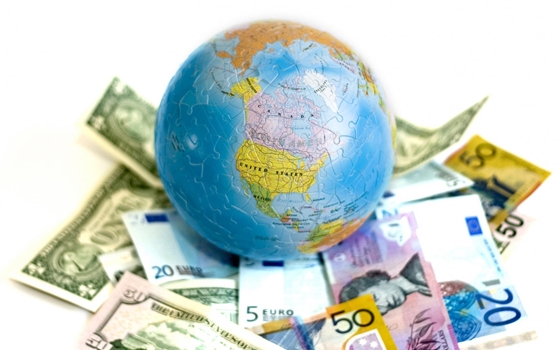Kuwait is hoping to turn its fractious political climate to its economic advantage, projecting itself as an open democracy in a region full of traditional monarchies as it tries to beat out competitors for foreign investment, the country's minister of state for cabinet affairs said.
Political instability can be a major hurdle for investment, but Kuwait is increasingly trying to position itself alongside Arab Gulf peers as a business-friendly country despite its rocky political landscape, Sheikh Mohammad Abdullah al Sabah, the minister and a member of Kuwait's ruling family, told Zawya Dow Jones in a telephone interview.
Oil-rich Kuwait has recently made a number of investor-friendly legal reforms, he said, including a new foreign direct investment law.
"We have a vibrant democracy," Sheikh Mohammad said. "It's as vibrant as it gets. This is maybe one of the main factors in what we hope will entice foreign investors to Kuwait. We have free and fair elections, a strong judicial system not prevalent in other areas of the region, and our geographic position puts us in an area which foreign companies should look at positioning themselves in to expand northward [into Iraq]."
Kuwait's parliament has been dissolved twice in the past year, most recently earlier this month as a result of a ruling from the Constitutional Court, the country's highest judicial body. This year's instability has centered around a change in voting rules made last year by the emir, Sheikh Sabah al Ahmad al Sabah, that angered opposition groups who contend they lost sway in the parliament as a result.
Kuwait's political system is the most democratic of the Arab Gulf regimes, but while the parliament is elected and can question ministers, the prime minister is chosen by the emir, and his cabinet is composed largely of members of the ruling family. The emir is considered constitutionally inviolable, and several people have been jailed over the past year for insulting him on social media sites.
Foreign companies have historically been able to operate in Kuwait without worrying much about its political issues, Sheikh Mohammad said, adding that while the political sphere has been tumultuous, it can be seen as functioning separately from the economy.
"The political situation in Kuwait does not have much of a reflection on economic activities of foreign companies, as many foreign companies can attest to," he said.
Kuwait's prime minister, Sheikh Jaber al Mubarak al Sabah, is set to travel to London later this week to celebrate the 60th anniversary of the Kuwait Investment Office, a U.K.-based government investment arm owned by the Kuwait Investment Authority, the country's main sovereign wealth fund. One aim of the trip would be to meet with trade ministry representatives and promote business opportunities in Kuwait, Sheikh Mohammad said.
"The KIO has been investing in the U.K. and the states and everywhere else, and we don't intend to change that tendency, but we'd also like our friends and partners to look at Kuwait and see what opportunities there are," he said.
The government, meanwhile, is hoping that the political situation at home is moving toward stability. The Constitutional Court recently tossed out a challenge by opposition groups of a change in voting laws that reduced the number of parliamentary votes per person from four to one. That had led the government to declare elections on July 25, but those polls were postponed pending the outcome of a clarification of the court ruling.
Whichever way that clarification goes, Sheikh Mohammad said the government planned to abide by it.
Dow Jones Newswires
26 June























































